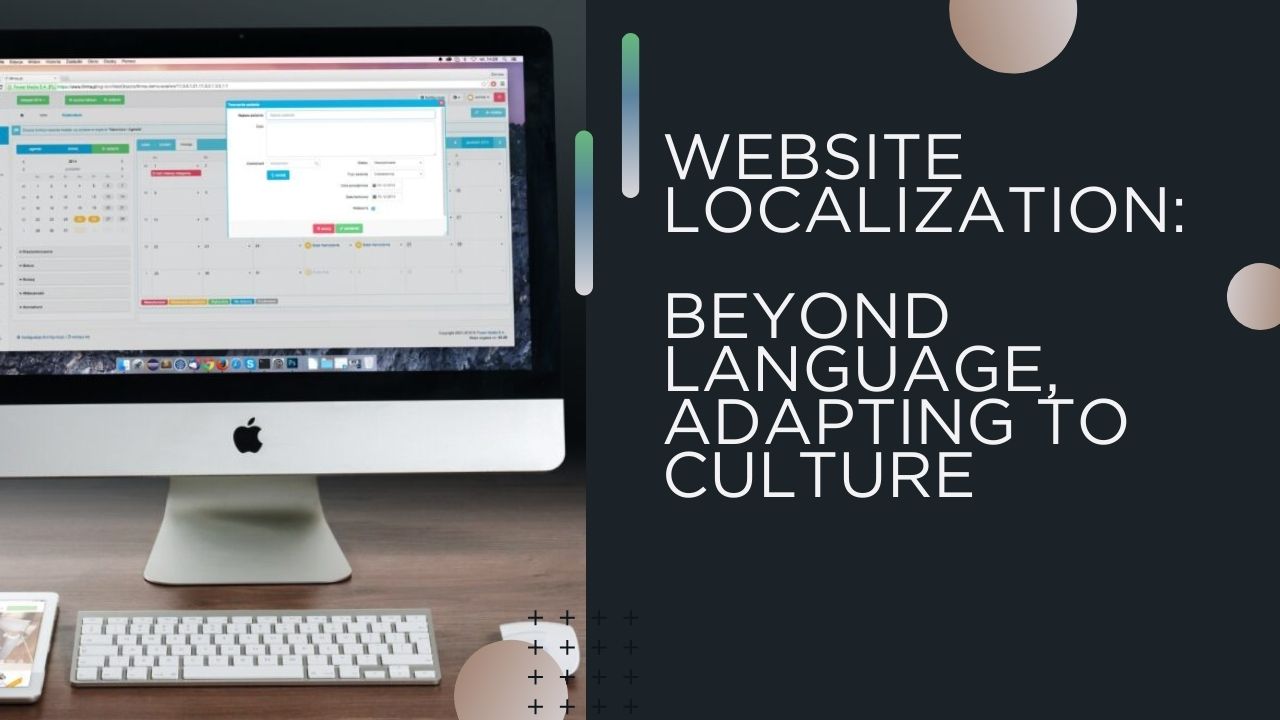In our interconnected world, businesses are no longer confined by geographical boundaries. The internet has opened up new frontiers, allowing companies to reach a global audience through their websites. However, for true global success, it’s essential to go beyond mere language translation and delve into the realm of website localization. In this blog post, we’ll explore the importance of adapting to different cultures when localizing a website.
- Understanding the Cultural Landscape
Effective website localization begins with a deep understanding of the cultural landscape of the target audience. It’s not just about translating words; it’s about resonating with the cultural values, norms, and preferences of your potential customers. Start by researching the target culture’s customs, traditions, and social behaviors.
- Localization of Visual Elements
Beyond text, visual elements play a significant role in website design. Colors, images, symbols, and graphics can have different cultural connotations. For instance, the color red may symbolize luck in one culture and danger in another. Make sure your website’s visual elements align with the cultural expectations of your target audience.
- Adaptation of Content and Messaging
Your website’s content should be adapted to fit the cultural context. This includes not only translating text but also tailoring your messaging to resonate with the local audience. Humor, idiomatic expressions, and wordplay can vary greatly across cultures, so it’s essential to use language that connects with the target audience.
- Navigation and User Experience
The way users navigate and interact with websites can differ from culture to culture. Pay attention to the layout, design, and user experience (UX) of your website. Consider whether your navigation menu, button placements, and overall design align with the expectations of your target audience. An intuitive user experience ensures that visitors can easily find what they’re looking for.
- Localize Payment and Shipping Options
If your website includes e-commerce functionality, adapting payment and shipping options is crucial. Different countries have varying preferences for payment methods and shipping providers. Ensure that your website offers payment options that are commonly used in the target market and provides accurate shipping information.
- Compliance with Local Regulations
Every country has its own set of laws and regulations governing websites and online activities. Ensure that your website complies with these regulations, especially concerning data privacy, online sales, and accessibility requirements. Non-compliance can lead to legal issues and damage your brand’s reputation.
- Mobile Optimization
Mobile usage patterns can vary from one region to another. In some markets, mobile devices are the primary means of accessing the internet. Ensure that your website is fully optimized for mobile devices and provides a seamless user experience across different screen sizes and operating systems.
- Regular Updates and Feedback
Website localization is an ongoing process. As your business grows and evolves, so should your localized websites. Encourage feedback from local users and regularly update your content to reflect changing cultural trends and customer preferences.
- Quality Assurance
Maintain a rigorous quality assurance process for your localized websites. This includes thorough testing of all website functions, from language accuracy to design layout and functionality. Ensure that the website works flawlessly for users in the target market.
Conclusion
Website localization goes beyond language translation; it’s about creating a seamless and culturally relevant online experience for your global audience. By understanding and adapting to the culture of your target market, you can effectively connect with customers, build trust, and enhance your brand’s reputation on a global scale. Partnering with experts in website localization, such as Quadrate, can help ensure that your website effectively bridges cultural gaps and opens doors to new markets. Embrace the power of localization to take your business to new heights in the global marketplace.
Website Localisation Done Here
